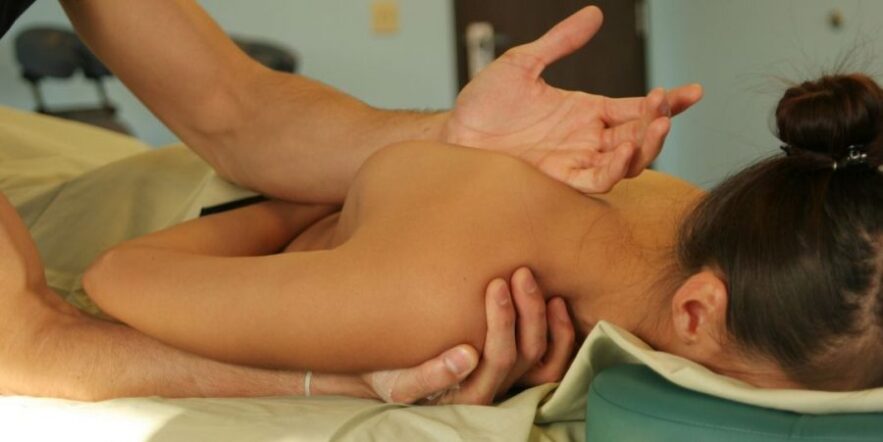There are plenty of ways to attack any condition. Many ailments can benefit from alternative therapies, and Parkinson’s is no different. Yes, there are alternative therapies for Parkinson’s disease.
Overall, treatment for Parkinson’s disease has come a long way over the years, with modern medicine touting prescriptions to help heal the condition. Unfortunately, no current medication can eradicate Parkinson’s — it’s a consistently degenerative disease, despite courses of treatment. Prescriptions only function to slow decline or improve symptoms as much as possible. Plus, they often come with a slew of side effects.
Alternative therapies for Parkinson’s disease are often much safer and similarly effective at improving your quality of life. These treatments can make improvements on their own or complement the medications you are taking for even better results.
Therapy
For most people, the first line of defense aside from prescription medication is to seek therapy. You’ll find several helpful branches depending on your specific needs and symptoms.
Physical and occupational therapy are exceedingly helpful in keeping your muscles strong and improving your range of motion. They can also help you maintain your life skills and find new ways to cope with the physical progressions of your condition.
More than two-thirds of people with Parkinson’s experience mental health issues. If you’re feeling depressed or suicidal, you need to talk with someone immediately. (All phones can reach a hotline at 9-8-8 for suicide prevention assistance. Options to talk via text, chat, or WhatsApp are available.) Working with a therapist can help you cope with internal battles.
Movement
Regular exercise can keep your body limber and improve your physical symptoms. Remaining sedentary allows your muscles and joints to stiffen and can hasten the progression of the disease. However, consistent attention to fitness will keep blood flowing to your extremities and give you greater control over your movements for longer.
Any exercise you can stick with is best, though many with Parkinson’s enjoy options with a mind-body connection like yoga or tai chi. The repetitive pattern of walking and swimming — as well as their low impact on joints — also make them an ideal choice.
Movement through play is an essential strategy to improve the symptoms and quality of life for children with rare juvenile Parkinson’s. They’re still developing their balance and coordination, making their condition even more difficult. The physical skills kids develop through play give them better control of their bodies. Play comes naturally for children, so encouraging this activity is a way to work on those basic skills in a fun way.
Acupuncture and Massage
While research is somewhat lacking in this area, initial outcomes seem to link acupuncture and massage with improved quality of life for people with Parkinson’s. Stimulating muscles and nerves improves blood flow and provides at least temporary relief from pain. The endorphins released in the process also help mitigate feelings of anxiety and depression.
A recent study split participants into two groups, one received acupuncture and one received a false version of the same treatment. Both groups claimed a reduction in their anxiety levels immediately following their appointment. However, the patients who had true acupuncture still had some anxiety relief two months later, whereas the others did not.
Massage can be a great temporary pain relief option. The rigidity and shaking of Parkinson’s build knots and soreness in your muscles and joints, so getting regular therapeutic massage can work those knots and stimulate healing in those areas. While it won’t eradicate your Parkinson’s symptoms, your pain levels may improve.
Nutrition and Supplementation
How you eat can go a long way toward alleviating your symptoms, especially if you continue to take Parkinson’s medication. Some studies suggest foods you should or shouldn’t consume when managing your condition. However, some research is contradictory or hasn’t been replicated.
The most important thing you can do is stick to a healthy, well-rounded way of eating. Keep to the perimeter of the grocery store so you can decrease the number of processed foods you eat. Steer clear of fad diets and programs promising grandiose results.
In addition to a healthy diet, you can work with a physician to determine supplements that may help. Bloodwork will determine any deficiencies like iron or vitamin D, which can make you tired and worsen depression.
CoQ10 is perhaps the best-researched supplement for people with Parkinson’s, although still limited. It can work to reduce inflammation, which is one of the causes of the progression of the disease. CoQQ10 may also help fight symptoms of depression, so taking this daily supplement could improve your mental and physical well-being.
Always Talk to Your Doctor
You should always consult your doctor before trying a new treatment, even alternative, naturopathic, or lifestyle adjustments. In some cases, your chosen option could do more harm than good. Your physician should be able to talk you through the research behind particular methods or explain typical interactions or side effects with your current regimen.






